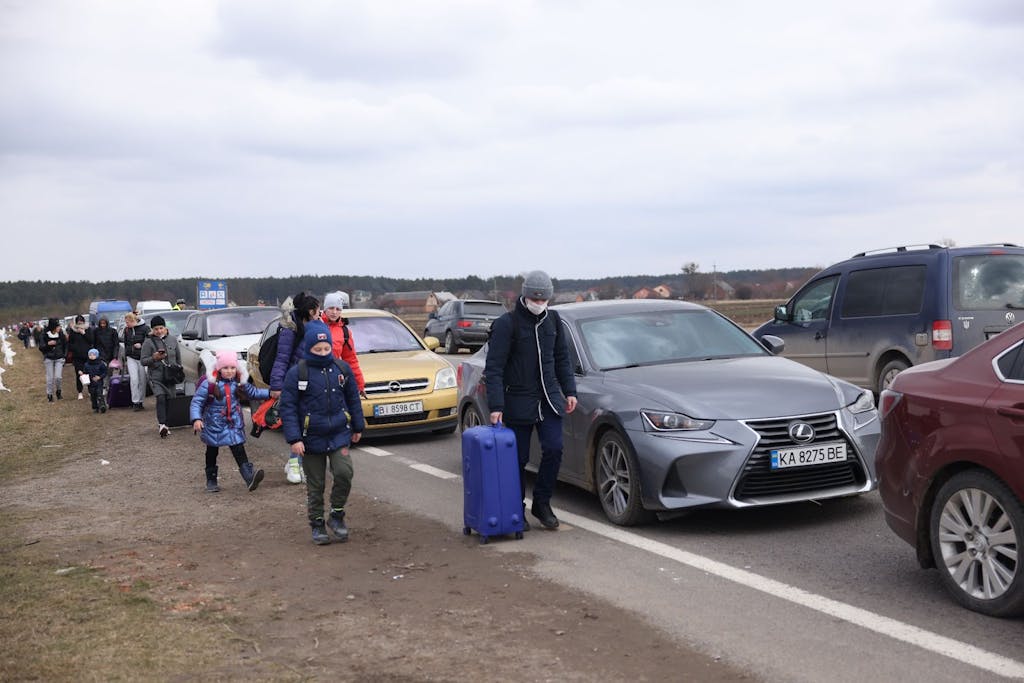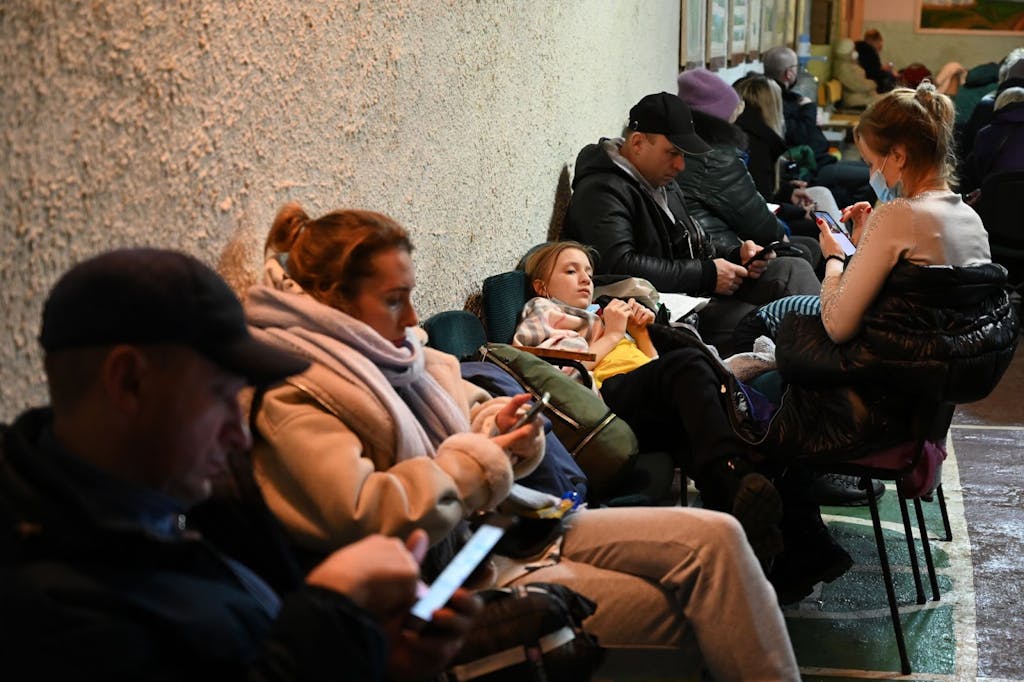Humanitarian needs are surging as the crisis in Ukraine escalates. The United Nations has committed to stay and deliver for the Ukrainian people and is rapidly scaling up humanitarian assistance. Keep reading to learn more about the UN’s efforts to ensure life-saving aid reaches those in need – and what you can do to help.
The Russian military invasion of Ukraine has set off a massive humanitarian emergency — in a matter of days, the lives of millions of people living in Ukraine were upended as widespread violence threatened their safety and security.
UNHCR, the UN Refugee Agency, estimates that more than 600,000 people have so far fled Ukraine for neighboring countries — countries that are now under tremendous strain as they absorb this sudden influx of refugees. An additional 100,000 people are thought to have been displaced within the country, though the real numbers are likely much higher.

On February 27, 2022, as military operations continue, people fleeing Ukraine walk along vehicles lining up to cross the border from Ukraine into Poland. Photo: Viktor Moskaliuk/ UNICEF
Taking Urgent Humanitarian Action in Ukraine
As the conflict continues and more people are displaced by the ongoing violence, experts warn that we could be on the precipice of a humanitarian and refugee crisis of historic proportions.
The UN has launched an emergency appeal for member states to fund its relief work in and around Ukraine. Coordinated jointly by the Office for the Coordination of Humanitarian Affairs (OCHA) and the United Nations High Commissioner for Refugees (UNHCR), the UN is seeking $1.7 billion to help ensure it can meet the urgent needs of those affected by the conflict — both within Ukraine and in neighboring countries. The UN estimates that as many as 12 million people will need assistance in Ukraine, while 4 million people will need support in neighboring countries as refugees.
This emergency appeal follows last week’s announcement by UN Secretary-General António Guterres that the UN would release $20 million from its Central Emergency Response Fund (CERF), the UN’s primary mechanism for quickly disbursing resources in times of crisis.
At the same time, the UN is calling on countries to step up and fund its 2022 Humanitarian Response Plan for Ukraine. Released earlier this year, the plan asked for $190 million to meet the needs of the 1.8 million vulnerable people living in the country prior to the current conflict. It remains less than 10% funded.

On February 25, 2022 in Kyiv, people gather in an air raid shelter as conflict escalates in Ukraine. Photo: Vyacheslav Ratynskiy/UNIAN
In addition to this rapid resource mobilization, the UN is on the ground delivering lifesaving humanitarian assistance and support to the people of Ukraine — from help by the UN Refugee Agency for those displaced by the conflict to support by the United Nations Children’s Fund (UNICEF) for Ukraine’s 7.5 million children to the World Food Programme’s emergency food assistance and ongoing efforts by the United Nations Population Fund (UNFPA) to protect the health and safety of girls and women.
Tragically, we know that innocent civilians always pay the highest price when nations go to war. The people of Ukraine have already suffered and endured so much in the past week — and for those living in eastern Ukraine, for the past eight years. But as the Secretary-General has said, echoing the UN Charter: “It’s not too late to save this generation from the scourge of war.”
DONATE TO THE UN’S HUMANITARIAN RESPONSE IN UKRAINE
If you would like to support the UN’s humanitarian relief efforts, please consider the Ukraine Humanitarian Fund. Not only is it the fastest and most effective way to ensure that lifesaving aid reaches people affected by the conflict, but it’s the only way individuals and companies can contribute directly to the UN’s humanitarian work.
STAY UP-TO-DATE ON THE UN’S WORK
This is a rapidly evolving situation — stay up-to-date and get the latest information from sources you can trust. Check out UN News for updates and consider following UNHCR, OCHA, and the UN on social media for more real-time information.








